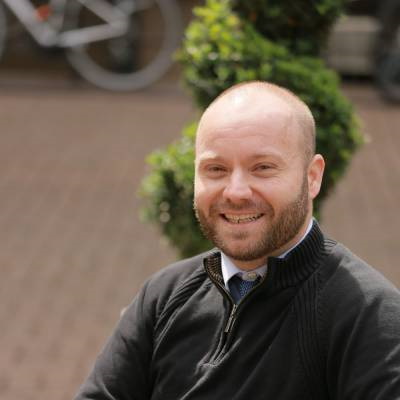Across the UK, students are returning to institutions and learning – or our best go at it.
In autumn 2020, students, institutions, towns and cities are confronting a number of critical and theoretical, operational questions and challenges. One acute challenge is student accommodation- where surges in Covid-19 cases among students have turned facilities into panopticons and prisons at the start of term.
In the spring, student accommodation virtually emptied across the UK. Keen not to repeat the disorderly retreat from campus, universities have asked whether it would be possible to try, test and adapt to Covid-19 again in real time? What sort of risks would students entering student accommodation across towns and cities pose to other students, staff, and the wider public in surrounding areas? And how would this be managed in the event of a surge in student Covid-19 cases?
Notes from the United States
There were a few examples of how US universities had approached testing, tracing, tracking and isolating Covid-19 in institutional facilities and student accommodation. At the University of California, San Diego (UCSD), a return to learn framework was forged with an ideal of ongoing contributions by administrators, researchers, lecturers, students, and student affairs staff to bring students back to campus.
However, just up the interstate at UCLA, administrators convened with city and state public health officials. It was too risky to bring 40,000 people (a day) in and out of campus.
The University of Illinois-Urbana-Champagne and Cornell University have developed dashboards, testing methods and protocols to assure students, staff and the wider public they have a robust system to test, trace, track and isolate as needed. Still, others – like the now infamous events at UNC-Chapel Hill – found themselves under early pressure. A shut-down of much of the institution and a move to online teaching for the foreseeable future followed within 14 days of the start of fall term.
UK planning, policies and practice
It’s late September 2020. Covid-19 continues to ebb, flow, and rage across the UK. Institutions, students, towns, and cities knew there were risks. We had tracked university planning, preparations and practice across the US and UK over the last six months. All indications were the resources required to slow the spread of Covid-19 would be massive. It was hard to say if institutions, local housing authorities, public health officials, or students themselves, were responsible for guidance and decision making around access to facilities like student accommodation.
A number of commentators were interested to see if the United Kingdom would implement any plans. Is it up to institutions to bring people together? Is it up to towns and cities to negotiate with institutions? Central government? Or university representative bodies at a national level?
Well, Manchester Metropolitan University and Glasgow University – to name just two – are discovering how hard it is to work as intermediaries between local and national public health officials and students in residential accommodation. Providers have become a buffer against the age old tensions between “town and gown”, and the court of public opinion is finding guilt among senior university staff, accommodation operators. At the moment there are no signs that this is letting up. Clarity around policy, planning and practice is needed. Otherwise, institutions will need to expend a lot of time and energy in defining and defending their approach to teaching, learning, and research – and to their commitments to students, accommodation operators and the surrounding towns and cities across the UK.
From partners to panopticons
There has already been a lot of press coverage. Over the weekend, The Guardian ran a number of stories – reporting, for example, on 1,700 students placed in quarantine in their student halls for 14 days. The Scottish ministerial response to outbreaks in Covid-19 and lockdown measures was described as a “panicky” response that revealed how under-prepared students, operators and administrators were for the sharp change in conditions. Later, Glasgow University announced it would refund some students their accommodation fees and release students to return home under certain circumstances.
Taking a cue from what has already happened in the US, ministers, administrators, public health officials, and housing authorities alike were calling on universities to suspend further student movements and delay starts to the academic year. The clear need is for adequate testing, tracing, tracking and isolating measures in order to achieve confidence in students returning to universities. Otherwise, our student accommodation is already being transformed into a series of prisons, with staff and authorities acting as a panopticon to monitor and observe students.
What should be done?
As Wonkhe has previously noted, we need a plan. A plan I believe requires the devotion of sustained time, energy, effort, and resources to the study of student accommodation. We need to better understand what place student accommodation plays in the lives of our institutions, students, towns and cities. A plan that appreciates the trade-offs when commodified housing for students replaces a long-standing sense of seeing student residences as part of a tradition in higher education – influencing students’ academic, social, and personal development. Indeed, this is evident in calls for universities in England to be compelled to offer partial fee refunds to students, where previous provisions and expectations do not align with the realities of autumn term 2020.
The powerful demands beating on the doors of our institutions reflect a public quest for clarity around what higher education institutions do, why they do it, and what recourse students have with and in their institutions if it all goes sideways.
As William Locke noted a few weeks ago during his Centre for Global Higher Education seminar:
a crisis is often a bad time to invent a new strategy.”
We need to consider our ethical and moral compass in our decisions rather than experimenting with the lives, welfare, wellbeing and experiences of our students, staff, institutions, towns and cities in pursuit of a ghost called normality and transforming a time that is anything but normal.












